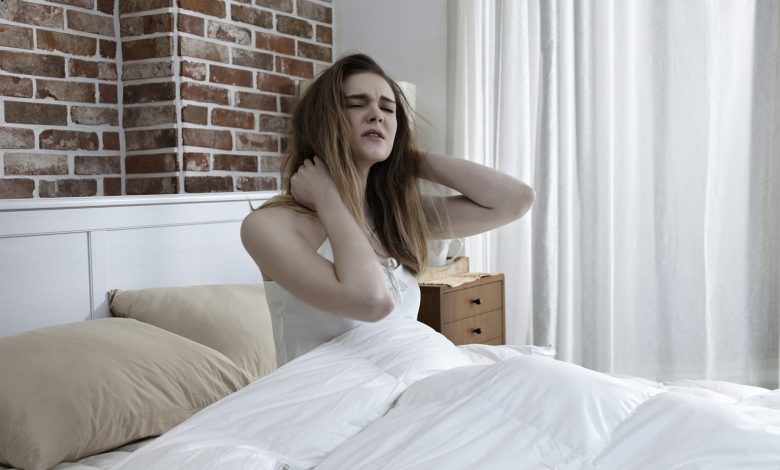How Long Does Xanax Withdrawal Insomnia Last?

Difficulty falling or staying asleep, or getting good quality sleep is considered insomnia, according to the National Heart, Lung, and Blood Institute. If it occurs for less than three months, it’s called short-term insomnia. Chronic, or long-term, insomnia, occurs three or more nights a week and lasts for 3 months or longer. Drug-induced insomnia can be either short-term or chronic.
If you have difficulty going to sleep, staying asleep, or find that you wake up too early, you may have insomnia. Trying to figure out the cause of these sleepless nights can be tiresome (no pun intended!), but sometimes, it’s as simple as reading the labels on your prescription medications.
Sleep deprivation can wreak havoc on your physical and mental well-being. That’s why it’s critical to understand how drug-induced insomnia impacts your health and what you can do to get a better night’s sleep.
While drug-induced insomnia is sometimes caused by a straightforward causal relationship between the interactions of a specific drug with your body’s neurotransmitters or receptors that control your sleep, the relationship between a drug and the side effect of insomnia is often a bit more complex.
What is Xanax?
Xanax is a brand of alprazolam, a powerful benzodiazepine that is used to treat anxiety and panic disorders by decreasing abnormal excitement in the brain. The medication comes in the form of a tablet that quickly dissolves in the mouth, and extended-release tablet, or a concentrated oral solution.
Benzodiazepines can have therapeutic anti-anxiety, anti-convulsant, muscle relaxing, and sedative effects. Xanax works by increasing the effects of a brain chemical called gamma-aminobutyric acid (GABA), which promotes calmness and produces a relaxed feeling. The drug decreases the level of excitement in the brain to treat anxiety and panic disorders.
Alprazolam is among the most prescribed benzodiazepine drugs in the U.S. and is among the benzodiazepines most often found in the illegal market, according to the Drug Enforcement Administration.
Xanax is often prescribed for mental health disorders related to anxiety. It can be used to treat general anxiety, panic disorder, social anxiety disorder and phobias. It can also be used to treat seizures. For people who suffer from anxiety, it can create a sense of relief to focus on their lives without issues of anxiety or phobias plaguing them. When used as prescribed, it can calm people down and make them feel relaxed.
Xanax can also reduce physiological symptoms of anxiety and fear, such as a racing heart or hyperventilation. These drugs are so often prescribed because they work well on anxiety and they’re cheap.
However, many people use Xanax for nonmedical reasons taking it in larger doses or more frequently than prescribed because it can create a euphoric feeling, especially at higher doses. Xanax tends to start acting quickly after a person takes it, and the euphoric effects of the drug will usually manifest themselves within about an hour after taking it.
A tendency has grown in some social circles to view Xanax, as a type of “alcohol” in pill form. It’s become socially acceptable among these groups of friends to get together and share Xanax with one another. Of the 30.5 million people who used benzos in 2015, 17.1% misused them. Misusing Xanax or combining it with other substances like alcohol can amplify its effects, but the results can also be deadly.
Along with recreational use, many people rely on Xanax to deal with issues like situational anxiety without having to commit to therapy, which can be expensive and time-consuming. Xanax is popular in America, for example, because there is a tendency for people to love things that are looked at as a quick-fix. Xanax isn’t a long-term medication, so some people “take it when they need it” for relief. The temporary relief they feel can help in a fast-paced world with constant exposure to negative world news, stressful jobs, and uncertainty.
Why does Xanax withdrawal occur?
When someone regularly takes Xanax, their brain may begin to adjust to the presence of the drug. They may eventually become physiologically dependent on their substance of choice and utterly reliant on it to function and feel “normal.”
In people who develop significant levels of dependence, withdrawal is often an inevitable response to the sudden absence or declining blood concentration of Xanax. Withdrawal symptoms may develop when a Xanax-dependent person quits “cold turkey” or substantially reduces how much they are using. During withdrawal, the body attempts to reach a new state of homeostasis as it rids itself of any lingering chemical influence of the drug in question. This can result in temporary disruptions in brain chemistry and may be accompanied by significant mental and physical health repercussions.
Can Xanax withdrawal cause insomnia?
Yes, insomnia is one of the initial symptoms of Xanax withdrawal other symptoms include; irritability, increased tension and anxiety, panic attacks, hand tremor, sweating, difficulty in concentration, dry wretching and nausea, some weight loss, palpitations, headache, muscular pain and stiffness and a host of perceptual changes. Instances are also reported within the high-dosage category of more serious developments such as seizures and psychotic reactions
How long does Xanax withdrawal insomnia last?
Xanax withdrawal insomnia starts within 1-4 days of stopping the drug and can last for up to a week depending on the dose and how long you have been on the medication.
However, the older you are, the more likely you are to have a longer Xanax withdrawal insomnia. Older adults wake up more frequently during the night, wake up earlier, and are more likely to report feeling unrested on awakening.
Sleep is important to your health, a Xanax withdrawal that doesn’t go away isn’t something to overlook.
If your Xanax withdrawal refuses to go away, talk to your doctor or healthcare provider about it. They may:
- Recommend a supplement like melatonin to help promote sleep
- Prescribe a stronger medication to help you sleep
Tips for better sleep
There are also some strategies you can take on your own to promote better sleep. Here are a few you can try, starting today:
Establish a bedtime routine: Turn off bright screens and any sources of blue light (like TVs, laptops, or smartphones), keep your room dim or dark, and engage in a calming activity like a bath, shower, or meditation.
Avoid physical activity several hours before bedtime: Getting your heart rate up throughout the day is a great way to stay healthy and promote more sound sleep. But if you exercise too close to bedtime, your body may not have enough time to settle, which can cause trouble falling asleep.
Avoid caffeine late in the day: Save your coffee and tea breaks for the morning and early afternoon. Caffeine too late in the evening can disrupt your sleep. If you enjoy warm tea to relax before bed, try a caffeine-free option like chamomile or lavender.





